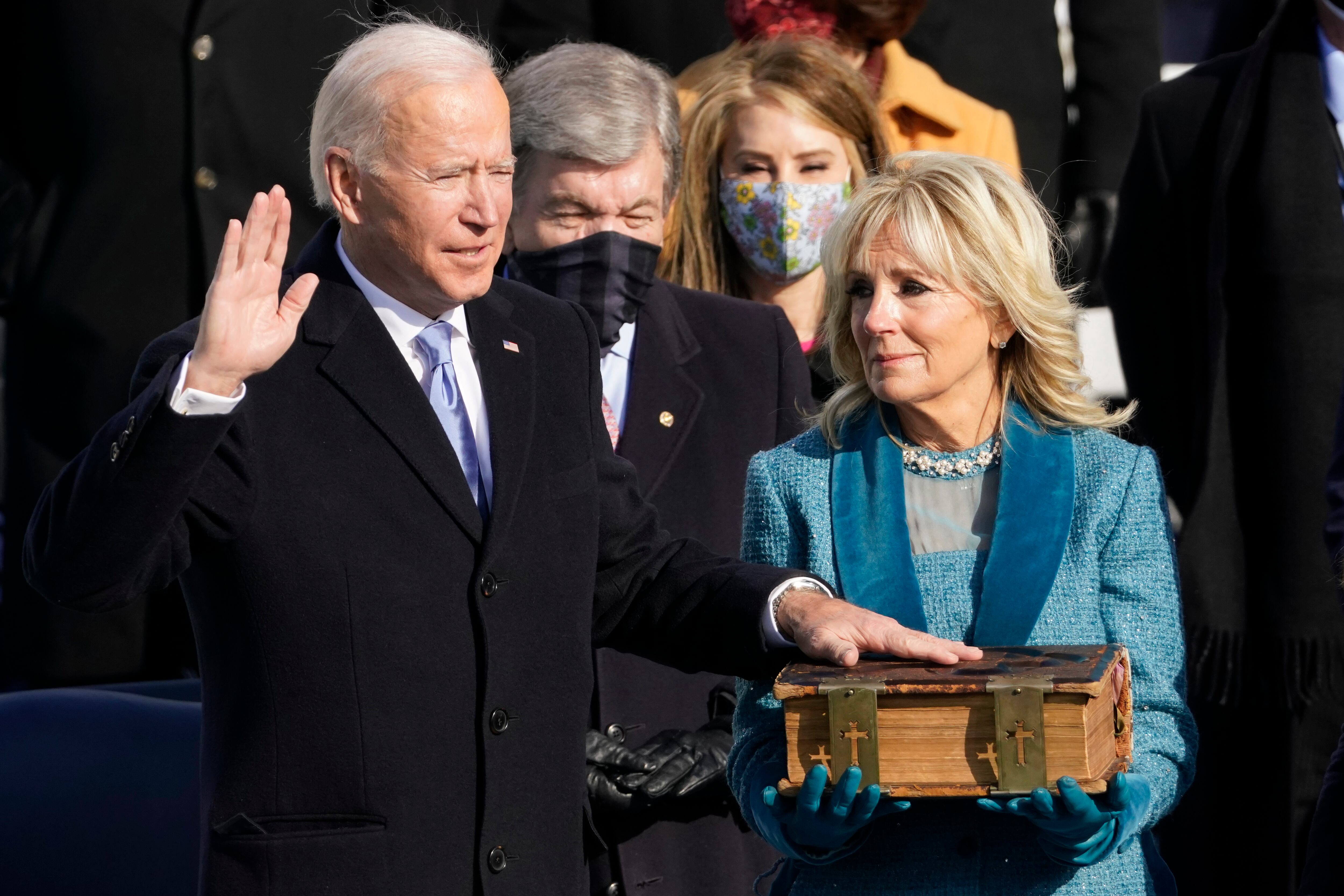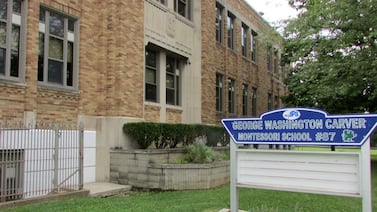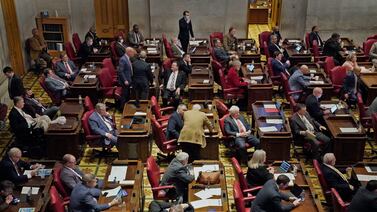Mary Graham remembers a few years ago when someone asked her why early childhood educators didn’t go on strike for a day to protest the industry’s low wages and reimbursement rates.
“We can’t do that. We can’t do that to working families. The country would fall apart if child care shut down,” she recalled saying, even if such a move would shed light on a chronically underfunded and underappreciated industry.
The coronavirus pandemic effectively did shut down much of the child care industry in Pennsylvania for several months starting in March, with devastating costs. Even as centers were allowed to open back up, enrollment has been down and the financial costs of doing business has increased with new health regulations. Widespread school closures, skyrocketing unemployment, disappearing child care centers, and prolonged lockdowns have made clear how crucial child care is to the economy.
The crisis has pushed child care to become a top policy issue, and President Joe Biden’s proposed massive relief package is evidence of a monumental shift, giving hope to an industry that has experienced a dreadful year. As such, for child care providers across Pennsylvania, Inauguration Day this year is about more than just a transfer of power.
The $1.9 trillion America Rescue Plan announced by the Biden team before the inauguration includes $40 billion for the child care industry. With the $10 billion for child care passed by Congress in the last coronavirus relief package, the proposed number matches the $50 billion in federal aid that advocates have repeatedly said was needed for the sector to survive.
Child care became a campaign topic in 2020 both nationally and locally, as politicians laid out plans for helping struggling Americans navigate the crisis. Bipartisan support for child care has grown over the past several years as the lack of affordable and high-quality child care has been pinpointed as an important barrier to employment. Advocates and child care providers alike are increasingly optimistic that 2021 might be the year that child care becomes a longstanding policy priority, not just an industry to be bailed out.
Biden’s proposal is already getting pushback from some senators who are alarmed by the price tag, and it’s unclear whether Congress, now controlled by Democrats by a narrow margin, will approve it in its entirety. But advocates say the plan’s commitment to child care indicates that the needs of the industry are being taken more seriously.
“Congress is going to have to do its thing and we’ll have to see what comes of this. But what is heartening is that our policymakers are hearing the message that child care is a vital sector to our economic recovery. The fact that it was so well represented in that package does speak volumes and gives us a sense of optimism that that will be successful in continued efforts to try and stabilize the sector,” said Steve Doster, Pennsylvania State Director for the Council for a Strong America and part of the Start Strong PA coalition, which has been advocating for increased funding for child care in Pennsylvania.
Still, child care has been gaining bipartisan support for years, on the state and federal levels. Advocates hope that even with a divided Congress, child care funding might be more likely to make it through the negotiations.
“The nature of the people who are in this field long term is to be optimistic, “ said Leslie Spina, director of Kinder Academy, which currently includes four child care and pre-kindergarten centers in Philadelphia. “The people who’ve been doing this for a long time, we always operate on a shoestring budget, we don’t get the respect that we deserve in a multitude of ways, but it goes beyond that. On the hierarchy of educating children in this country we are at the bottom of that hierarchy.”
So far, 2021 has encouraged that optimism.
Of Biden’s proposed funding package, $15 billion would go to the Child Care and Development Block Grant, which funds state-subsidized child care for low-income families, while $25 billion has been proposed for an “emergency stabilization fund.”
Advocates are also encouraged that Biden’s most recent proposal includes $350 billion in local and state government aid, aimed at helping struggling state and local budgets. The relief bill is a one-time payment, but cuts to child care in the state budget could have lasting consequences for years to come.
“We are thrilled. They are finally recognizing the need,” said Graham, “but it is only a bandaid.”
Providers say the need is widespread, from short-term relief to keep the industry from collapsing due to COVID-19 to long-term increases in Pennsylvania’s reimbursement rates in order to increase wages and address dire staffing shortages.
The first priority is maintaining the landscape of high-quality child care centers that advocates have built over the past several decades. With at least 480 child care centers closed across the state, the child care gap is widening.
But the needs go beyond mitigating the effects of the virus. State-subsidized child care could be even more crucial after the pandemic, if unemployment rises and families are stretched increasingly thin. But in order to make child care a reality for working families trying to go back to work, advocates say the state will have to address the existing problems in the industry and those caused by the virus.
Graham has seen a 40% decrease in enrollment since the pandemic started, not including those children who are now attending virtually. Revenue has been cut even further, by about 60%, because of a change in state-subsidy payments. Even during a typical year, the state’s program to subsidize care for low-income families doesn’t cover the full cost of child care.
For child care centers to be considered “high quality” within the Keystone Stars program, they must meet certain requirements, such as having staff with advanced degrees. They also must provide staff with benefits, such as health insurance. So while there are higher reimbursements for higher quality, the costs are even more substantial.
One of the biggest issues is staff retention. Salaries offered by child care centers often aren’t competitive, especially when requiring advanced credentials and relying on a state subsidy for low-income families.
Addressing these issues would take commitment from both Washington and Harrisburg, but some child care providers believe if they can survive the COVID-19 crisis there could be a better understanding of the service the child care industry provides.
“It is wonderful, we are so happy with the proposals coming out of the incoming Biden administration,” said Graham. “It is a desperately needed emergency investment, but we also need long-term investments.”








